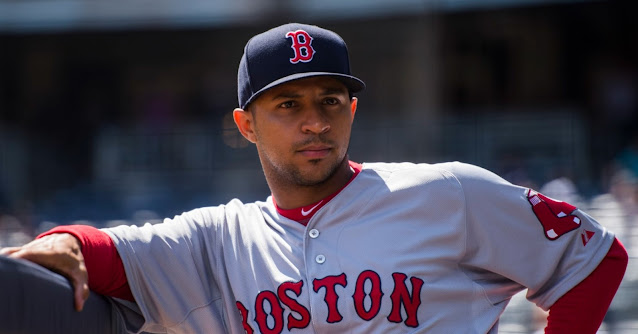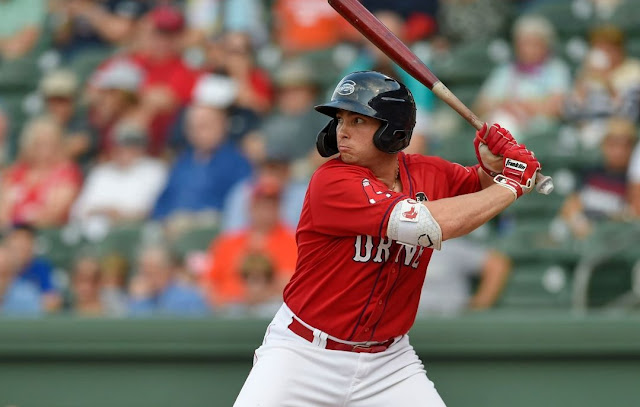2017: 104-58 - Tied (with 1942) for second-most wins in a season (105-49 in 1953); won NL pennant
2018: 92-71 - Won NL pennant
2019: 106-56 - Set new franchise record for most wins
2020: 43-17 - Set new franchise record for highest winning percentage (.717); previous record: .682 (1899, 1953);
finished first in NL West for eighth consecutive season; won World Series
2021: 106-56 - Tied franchise record for most wins
2022: 108-48 - Set new franchise record for wins; second highest winning percentage in franchise history;
finished first in NL West for 9th time in last 10 seasons; six games remaining
Shohei Ohtani came within four outs of a no-hitter last night against the Athletics. Ohtani (8-2-0-1-10, 108) walked the first man he faced before retiring the next 22 batters. Ohtani gave up a pair of two-out singles in the eighth inning. He also went 2-for-4, extending his career-high hitting streak to 14 games.
In Ohtani's previous start, he struck out his 200th batter of the season (he's at 213 now), which means he holds the record for most home runs by a pitcher with a 200-K season. He's got 34 dongs, which shatters the previous record of seven, set by Don Drysdale in 1965 and Earl Wilson in 1966.
Ohtani has pitched 161 innings this season. If he pitches one full inning next Wednesday in the final game of the regular season, he will become the first player ever to achieve both qualifying marks as a hitter (3.1 PA per team game (502 PA)) and a pitcher (1 inning per team game (162 IP)).
Right now, Ohtani is first in the AL in K/9 (11.9), tied for 3rd in strikeouts (213) and wins (15), and 4th in ERA (2.35).
On September 27, Aaron Judge (sitting on 60 home runs) walked four times against the Blue Jays; those were the Yankees' only walks in the game. The last time any Yankee walked four or more times and his teammates combined for zero walks was August 13, 1958, Mickey Mantle walked four times, no other Yankees walked. Looking at the box score, no Senators walked either, so Mantle was the only guy to draw a walk in the game -- and he had four!
Marlins pitcher Richard Bleier was called for three balks while facing one batter two days ago (September 28). Amazingly, they were the first balks of his seven-year career!
#1-1,225: 0 balksBleier took the mound for the bottom of the eighth inning, with his team up 6-3, and retired the first two Mets. Pete Alonso stepped in. Bleier was called for a balk by first base umpire John Tumpane as he threw ball one. McNeil went to second. Bleier threw ball two. Bleier was called for another balk by Tumpane as he threw a called strike. McNeil went to third. Bleier threw ball three. Bleier was called for a third balk by Tumpane as he threw called strike two. McNeil scored. Marlins manager Don Mattingly was ejected by plate umpire Ryan Blakney. Bleier got Alonso to ground out on his next pitch. On his way to the dugout, he was ejected by Blakney. The Marlins won 6-4.
#1,226: 3 balks
While Bleier is not resting his hands and glove at his waist, he's also not moving his hands in a continuous fluid motion. His coming to a set is borderline, but if umpires called balks on all borderline sets, there would be 20 balks a game. One thing is very clear: Bleier was making no attempt to deceive the baserunner. Anyhoo, Bleier is the seventh pitcher to have three balks in one inning, but the first to do it with the same batter at the plate.Richard Bleier gets called on a balk three times in a single at-bat.
— Baseball GIFs (@gifs_baseball) September 28, 2022
(via r/baseball) pic.twitter.com/i8KbygXaBA
Charlie Sweeney April 30, 1885 1st inningAfter 1930: Nothing for 33 years . . . twice in 11 days in 1963 . . . nothing for 25 years . . . twice in 1988 . . . nothing for 34 years. . . . Will someone else balk three times in the next six days?
Milt Shoffner May 12, 1930 3rd inning
Jim Owens April 24, 1963 2nd inning
Bob Shaw May 4, 1963 3rd inning
Don Heinkel May 3, 1988 6th inning
Jim Gott August 6, 1988 8th inning
Richard Bleier September 28, 2022 8th inning






